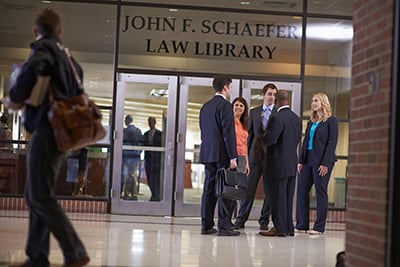
Michael Sant'Ambrogio
He/him/his
Dean and Red Cedar Distinguished Professor of Law
College of Law
368
Biography
Michael Sant’Ambrogio was appointed Dean of the College of Law and Red Cedar Distinguished Professor on October 25, 2024, after having served for ten months as Interim Dean. Dean Sant’Ambrogio has been on the faculty of the College of Law since 2011 and previously served as Senior Associate Dean for Faculty and Academic Affairs and as Associate Dean for Research. Dean Sant’Ambrogio is committed to student success. Under his leadership, the College has created small 1-L sections with early in
Read more


